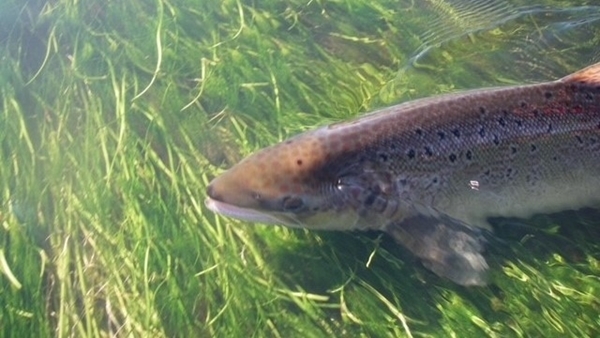
The number of wild adult Atlantic salmon returning to the River Frome in southern England in 2021 was down almost 20% on its 10-year average. This drop echoes reports from Scotland and Norway where the 2021 annual salmon catches were the lowest on record - a clear message that 2021 was a very poor year for returning Atlantic salmon. The widespread reporting of declining adult salmon returns further highlights the growing need for targeted action to protect this iconic species.
Juvenile Atlantic salmon smolts migrating to sea from the River Frome in 2021 were also 30% below the 10-average, so expectations for adult returns from this smolt cohort, as grilse in 2022 and multi-sea-winter salmon in 2023, are low.
This week the Game & Wildlife Conservation Trust (GWCT) published its 2021 Fisheries Research Review. Based at the Salmon & Trout Research Centre at East Stoke on the River Frome in Dorset, the GWCT Fisheries Team is responsible for one of the longest running salmon monitoring projects in the UK. The River Frome is a salmon index river and provides data on marine survival rates for Atlantic salmon to the International Council for the Exploration of the Sea (ICES). ICES uses River Frome data, along with other salmon data from the North Atlantic, to provide scientific advice on high seas exploitation.

There are, however, some more positive signs from recent monitoring, as Rasmus Lauridsen, head of GWCT Fisheries Research, explains:
“Although we had a disappointing adult salmon run in 2021, we encountered good numbers of salmon parr in our annual parr tagging campaign in September, indicating excellent recruitment from the salmon which reproduced in 2020. So we are expecting a strong run of out-migrating salmon smolts in 2022.”
As a founding member of the Missing Salmon Alliance (MSA) the GWCT Fisheries Research Review also reports on the evolution of the MSA’s Likely Suspects Framework. The framework is developing novel ways to predict future salmon marine survival using indicators of ecosystem health and life cycle knowledge to improve decision making tools for salmon management.
The review can be downloaded here >
Notes to editors
The Game & Wildlife Conservation Trust – providing research-led conservation for a thriving countryside. The GWCT is an independent wildlife conservation charity which has carried out scientific research into Britain’s game and wildlife since the 1930s. We advise farmers and landowners on improving wildlife habitats. We employ 22 post-doctoral scientists and 50 other research staff with expertise in areas such as birds, insects, mammals, farming, fish and statistics. We undertake our own research as well as projects funded by contract and grant-aid from Government and private bodies. The Trust is also responsible for a number of Government Biodiversity Action Plan species and is lead partner for grey partridge and joint lead partner for brown hare and black grouse.
For information, contact:
Eleanor Williams
Telephone: 07592 025476
Email: press@gwct.org.uk